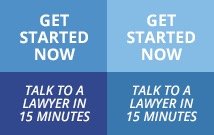What Happens to Retirement Accounts in Bankruptcy?

You have worked hard your whole life and have built up a substantial retirement savings over the course of 20, 30 or even 50 years, but now that you have fallen on hard times and have to file for bankruptcy, you are worried that your retirement accounts will be considered an asset and that the money within them will be taken to pay off your debts. You need not worry…at least, not in most cases.
Most retirement accounts are considered exempt assets, meaning that they cannot be touched by creditors or trustees in a Chapter 7 or Chapter 13 bankruptcy. Having said that, the law makes room for some exceptions (as it always does), which will be explained in detail in this post. If you are considering filing for bankruptcy, and if you have any sort of savings, you need to learn about these bankruptcy exemptions so that you can decide if this debt relief method is really right for you.
When Your Retirement Accounts Are Exempt
According to the 11 U.S. Code § 522.(b)(3)(C), all retirement and pension accounts are exempt from creditors in bankruptcy, meaning that you will not only get to keep your savings, but also, if you file for Chapter 13, your savings will not count towards your income. This means that what you will be asked to repay will not increase each month because you have a significant amount of money in your savings. While there are some exceptions to this rule, accounts that are exempt must be ERISA-qualified, and include:
- 401(k)s;
- 403(b)s;
- Keoghs;
- IRAs (Roth, SIMPLE, and SEP);
- Money purchase plans;
- Defined benefit plans; and
- Profit-sharing plans.
The law also protects non-ERISA plans, but again, there are exceptions to that.
When Your Retirement Accounts Are Not Protected
If you have a non-ERISA plan, the exemption only applies to $1,283,025 of your total savings. This amount can be spread out between several different accounts; each account does not have to have $1,283,025 before creditors can claim excess amount. If your savings is more than this amount, the bankruptcy court can take the excess amount and use it to repay creditors.
Additionally, any funds paid you in the form of monthly benefits are also non-exempt. However, the bankruptcy courts understand that people need those benefits to live, so it will only take amounts over and above what you need for support. If you file for a Chapter 13, monthly benefits are considered income.
There are a few other exceptions to the exemptions as well, including:
- If you withdraw money from your retirement plan prematurely, it is no longer protected;
- If the IRS has already filed a tax lien against you, it may be given access to your savings; and
- If you are divorced, your former spouse may have access to your retirement accounts.
Consult With a Lawyer Before Filing for Bankruptcy
If you have a significant amount of money in your retirement accounts, it would be in your best interests to consult with a West Palm Beach bankruptcy lawyer before filing for bankruptcy. If you file prematurely, you may unwittingly forfeit your savings and be left with nothing. Our attorneys at The Port Law Firm can ensure that that does not happen, and that you are able to protect what you have rightfully earned over the years. Take steps to protect your assets, and call our office today.
Resource:
law.cornell.edu/uscode/text/11/522



